Every internet user has experienced the frustration of clicking a link or typing in a URL, only to find the page refuses to appear. Business owners in particular feel the impact when they hear from customers asking, why website won’t load, since every failed connection represents lost trust and potential revenue. Websites serve as the digital storefronts of modern businesses, and when they fail to load, they leave a negative impression that can send visitors to competitors. To understand the many reasons why a website may fail, it is necessary to explore technical, user-side, and infrastructure-related issues that contribute to downtime.
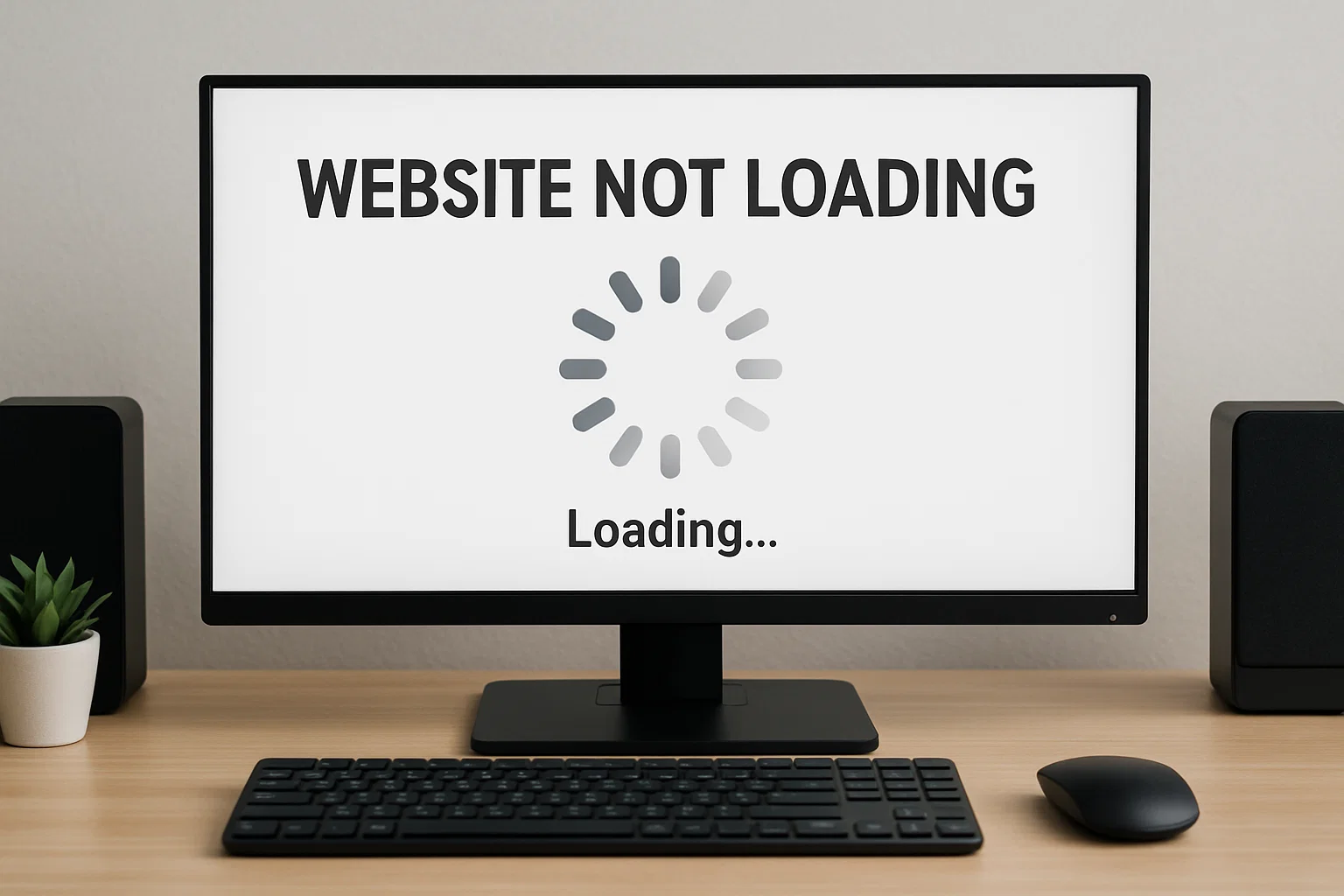
Technical Issues Behind Loading Failures
One of the most common explanations for why website won’t load is rooted in technical malfunctions. Websites rely on multiple systems working together—servers, databases, and scripts. If any of these break down, the site may fail to respond. Corrupted code, outdated plugins, or incompatible scripts are frequent culprits, especially on content management systems like WordPress. Overloaded servers are another source of trouble, often occurring when traffic spikes beyond what the hosting plan can handle. Without consistent Website Maintenance, these technical failures accumulate until they cause extended downtime.
Browser and Device Compatibility Problems
Sometimes the answer to why website won’t load lies in the visitor’s browser or device. Different browsers interpret code in slightly different ways, and websites that fail to account for this may display incorrectly or not at all. Extensions or cached data can also interfere with functionality. On mobile devices, outdated operating systems or low memory capacity can prevent websites from rendering. The World Wide Web Consortium (W3C) highlights the importance of designing with compatibility and accessibility in mind so that sites reach the broadest possible audience.
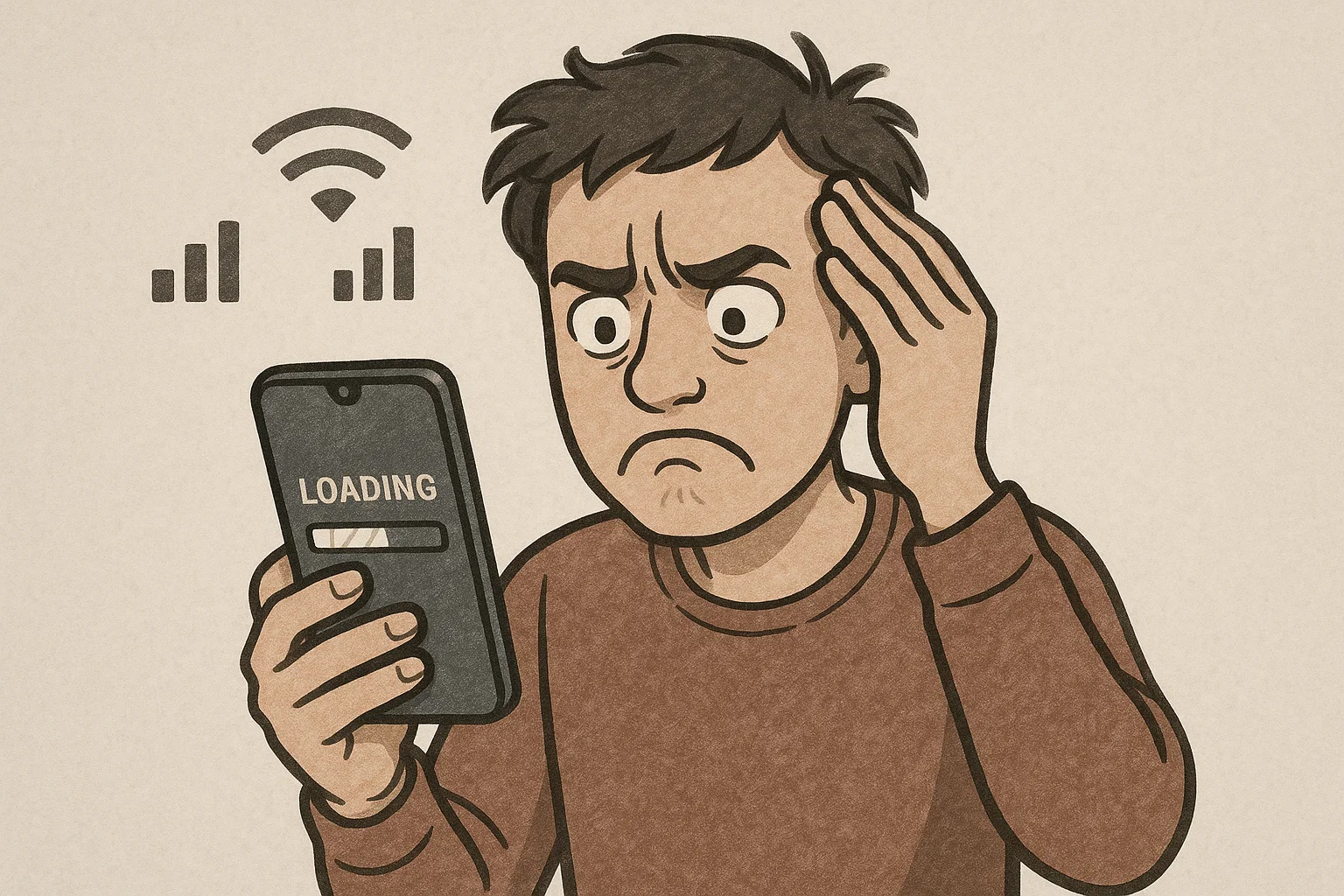
Internet Connectivity and User Network Issues
Not all cases of why website won’t load are caused by the website itself. Weak or unstable internet connections can prevent pages from loading fully. Packet loss, ISP outages, or router problems may all create the appearance of a broken site. While website owners cannot fix user-side internet issues, they can optimize their sites to minimize the frustration. Using lightweight page designs, compressing media, and ensuring mobile responsiveness all help users on slower networks experience smoother browsing. Performance optimization, often part of Technical SEO Services, makes a significant difference in these scenarios.
Server Downtime and Hosting Failures
Among the most serious reasons why businesses ask why website won’t load is server downtime. Every website lives on a server, and if the server goes offline, so does the site. Causes range from scheduled maintenance to hardware failure and insufficient server resources. Shared hosting plans, where multiple sites compete for the same bandwidth, often experience these problems more frequently. For businesses, the solution is to invest in reliable hosting providers and monitor uptime closely.
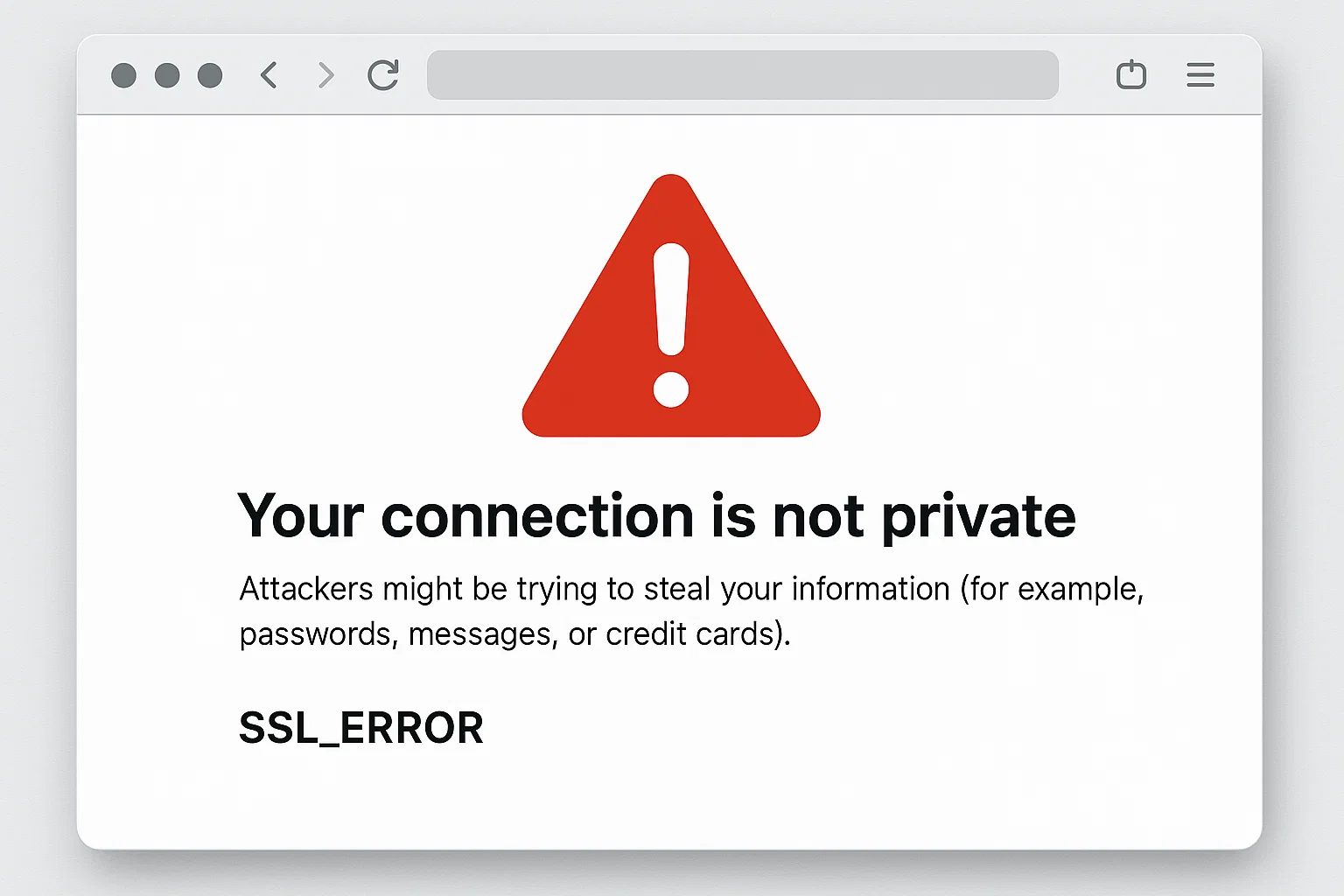
DNS and Domain Name Issues
A less obvious but equally important cause of why website won’t load relates to DNS, the Domain Name System that connects domain names to IP addresses. If DNS records are misconfigured, outdated, or slow to propagate after changes, websites may become temporarily unreachable. Expired domain names also cause websites to go offline entirely. Keeping domain registrations current and DNS records properly managed is essential. Without these safeguards, even a fully functional site can disappear from view, frustrating visitors and harming business reputation.
Caching and Content Delivery Network Problems
Web caching is designed to improve load speed, but it can sometimes lead to confusion. Users may see outdated versions of a site or encounter conflicts between cached data and updated files. Clearing the browser cache often solves these issues, but they can still leave users wondering why website won’t load. On a broader scale, content delivery networks (CDNs) distribute website content to servers across the globe, improving access speed for international users. When CDNs encounter problems, however, global audiences may experience errors or slow performance. Managing caching effectively and ensuring CDN reliability keeps sites consistent for visitors worldwide.
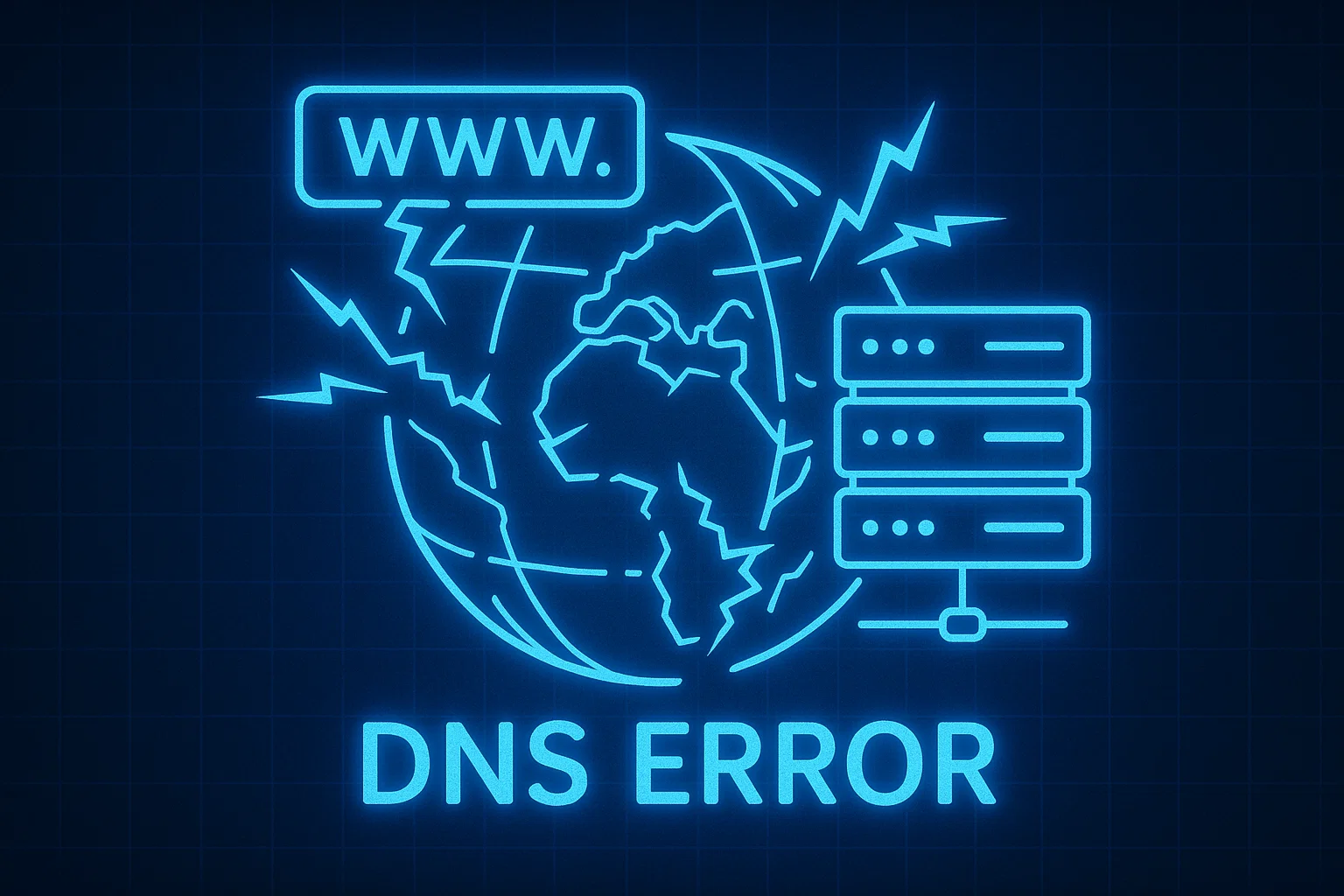
Security Concerns and SSL Errors
Another critical factor in answering why website won’t load is website security. If a site’s SSL certificate expires, modern browsers block access, warning visitors that the site is unsafe. Malware infections, phishing attacks, or defaced pages can also trigger browsers to stop loading a site. These problems damage trust and often lead to long-term reputational harm. Consistent monitoring, firewall protection, and timely Website Redesign projects that update outdated systems help businesses avoid these disruptions. For search engines like Google, websites flagged as unsafe also lose ranking visibility.
Mobile-Specific Challenges
Mobile browsing introduces unique challenges when considering why website won’t load. Many users access websites on mobile networks, which can be inconsistent in speed and reliability. If a site is not optimized for mobile devices, it may load slowly or fail to load altogether. Poorly implemented responsive design, oversized images, or blocked scripts can all lead to errors. Accelerated Mobile Pages (AMP) and mobile-first design principles recommended by Google Search Central help prevent these issues and improve user experience for mobile audiences.
Examples of Real-World Loading Failures
Case studies provide clear illustrations of why these problems matter. An ecommerce website that lets its SSL certificate expire may find that visitors cannot check out securely, costing thousands in lost sales. A local business relying on a low-cost shared hosting plan may see their site slow to a crawl during peak hours, pushing frustrated customers toward competitors. Each of these situations demonstrates that when companies ignore maintenance or cut corners on hosting, they invite the question of why website won’t load far too often.
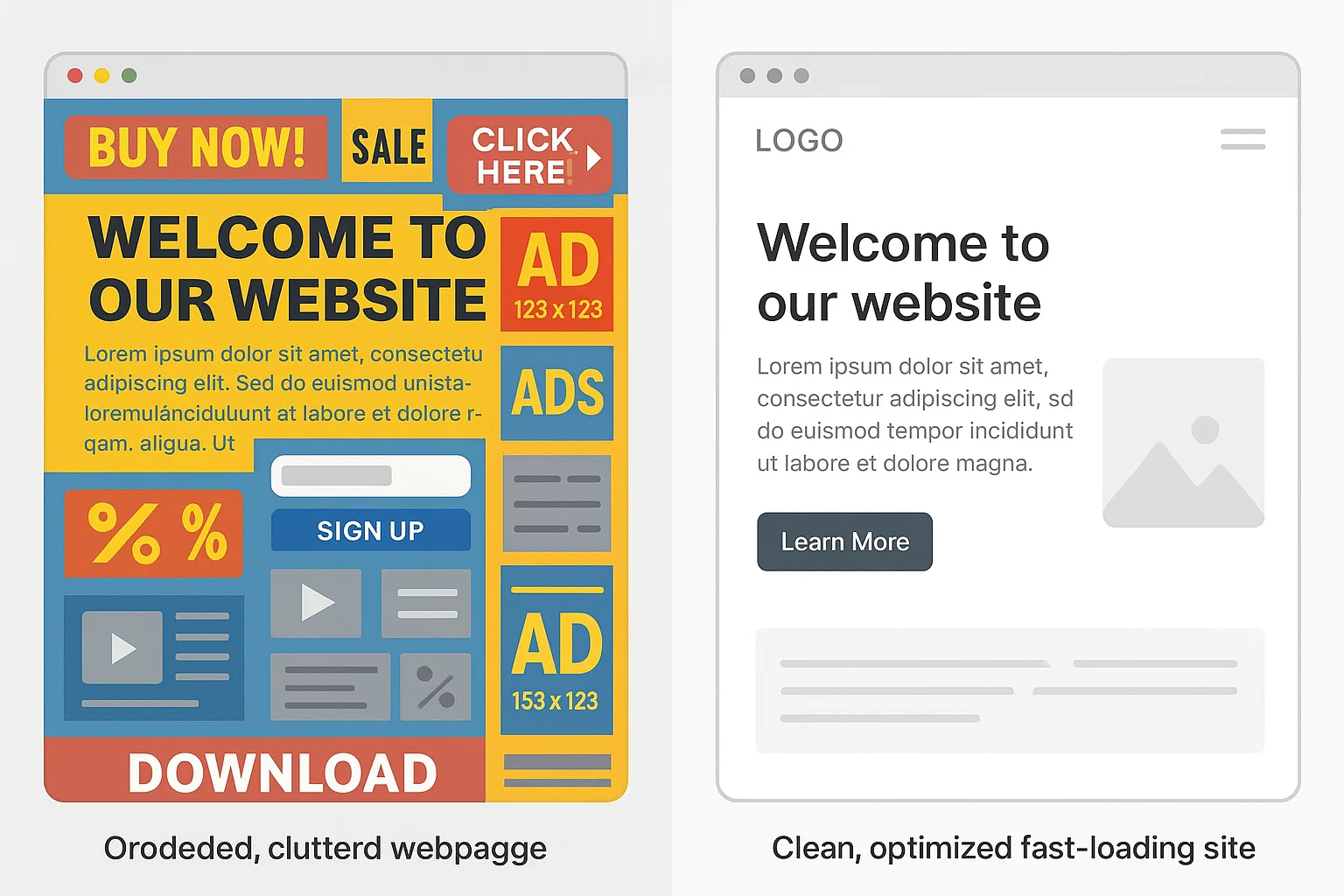
Preventing Website Loading Issues
Fortunately, many causes of downtime are preventable. Proactive maintenance ensures plugins and software remain updated, reducing compatibility issues. Investing in higher-quality hosting plans minimizes server-related downtime. Implementing regular backups allows for quick recovery if problems arise. Businesses that commit to regular WordPress Website Design updates or Shopify Website Design improvements also stay ahead of evolving browser and user expectations. Monitoring uptime and tracking performance metrics give early warnings, allowing owners to respond before users notice problems. Together, these steps create resilience against future failures.
Future-Proofing Websites Against Downtime
Looking forward, the digital landscape will continue to evolve, introducing new challenges and opportunities. Websites that rely on artificial intelligence for predictive maintenance may soon detect issues before they occur. Automation already plays a role in managing updates, backups, and security scans, and this trend will grow. Businesses that ask why website won’t load today can learn to future-proof their sites by embracing modern technologies and aligning with global web standards. By treating website management as an ongoing process rather than a one-time setup, companies create long-term stability for their online presence.

Conclusion
The question of why website won’t load does not have a single answer but rather a spectrum of causes, ranging from technical glitches and server downtime to browser compatibility and user-side internet issues. Each potential problem impacts customer trust, brand reputation, and revenue. Preventing these failures requires a comprehensive approach that addresses security, performance, hosting, and regular updates. Businesses that remain proactive and treat website care as an essential part of their strategy maintain stronger, more reliable digital platforms. For organizations that want peace of mind, working with experienced professionals such as Best Website Builder Group ensures that their websites remain secure, fast, and always accessible to their audiences.
